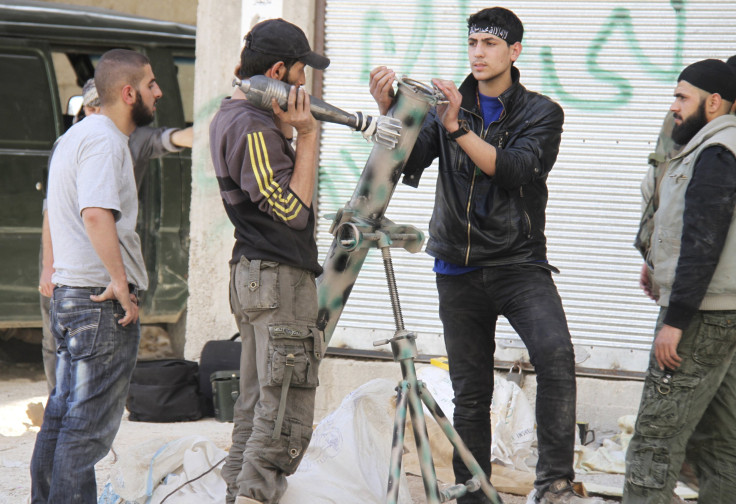Free Syrian Army Advances On Military Strongholds Near Damascus

Rebels with the Free Syrian Army (FSA) made advances on military-held neighborhoods in Damascus over the weekend, the first major attempt by the opposition group to take on President Bashar al-Assad’s forces in the capital in months. Recent advances by Syrian rebels have been largely made by radical groups such as ISIS, not by moderates like the forces grouped under the FSA.
The FSA forces advanced from the Ghouta area, an eastern suburb of Damascus, to Abbasiyeen Square in the capital. The rebel group reported heavy regime losses, though those claims could not be verified independently.
A Twitter account apparently linked to Gen. Salim Idris, the commander of the FSA, confirmed the rebel group’s movements.
We have successfully made an advance from the Ghouta areas into Abasiyeen square. The Syrian regime are calling for negotiations #Damascus
— Gen. Salim Idriss (@Gen_Idriss) July 20, 2014If the FSA maintains position in Damascus, Richard Murphy, a senior fellow at the Middle East Institute, said it could justify U.S. aid to the group.
The Obama administration has designated particular battalions that fight under the umbrella of the FSA as the “moderate opposition” in the country and has been arming those groups since the CIA launched its program last summer.
Since then, the opposition has continuously asked U.S. and European leaders to pledge more arms and money to help fight Assad’s forces, but its request went unanswered. And in May, the opposition ost control of Homs, which Syrians had dubbed the "heart of the revolution."
The White House said it would ramp up its efforts to support the opposition when President Barack Obama requested $500 million in additional funds from Congress to train and arm the FSA with heavier weaponry. Congress has not responded to the request. Over the past three years, U.S. senior politicians have been warry of arming the opposition with anti-aircraft weapons such as portable shoulder-fired missiles (MANPADS) because they fear the weapons will fall into extremist hands.
That plea for help intensified when the Islamic State of Iraq and Syria (ISIS) advanced in Iraq, seizing army weapons there and opening the border with Syria. The opposition now has to fight on two fronts, against Assad and against ISIS, and it has to worry about fighting a militant group that has access to stockpiles of newly acquired, powerful arms.
ISIS advanced in eastern Syria earlier this month, capturing an oil refinery and taking over the town of Al Bukamal-Qaim on the border of Iraq, territory previously occupied by Jabhat al-Nusra, an al Qaeda-affiliated militant group in the country.
The Syrian Observatory for Human Rights, one of the only groups reporting on events on the ground in Syria, said the jihadist group has been expelled by the FSA from the towns of Mesraba and Maydaa in Eastern Ghouta, as well as in the Talda and Beit Sahem neighborhoods.
Although the FSA has advanced in Damascus, experts said that position is going to be hard to maintain.
“The government is very determined to hold on,” Richard Murphy, a senior fellow at the Middle East Institute, said. “The last place the military is going to accept any serious challenge is Damascus.”
© Copyright IBTimes 2025. All rights reserved.





















